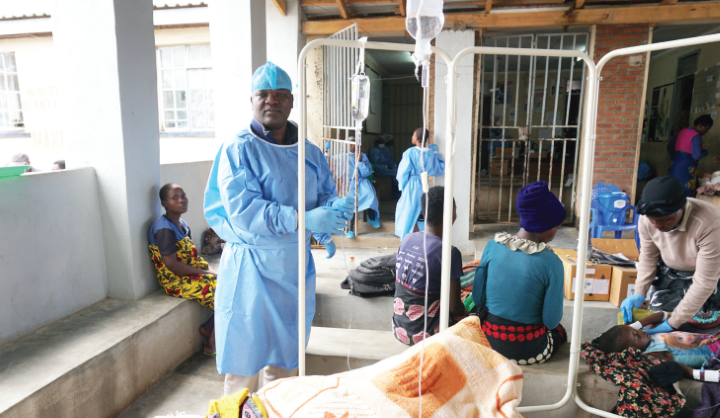Long way to eradicating HIV, stigma at workplace
Blantyre-based HIV and Aids civic educator Linnah Matanya is filled with sorrow. She fears for people living with the virus which causes Aids and is worried with some employers who do not see the need of providing their infected employees with care.
Matanya, who is executive director of Women for Fair Development (Wofad), says HIV-positive people cannot afford the recommended diet because of low income.
“Sometimes, most of them feel sidelined for having declared their HIV positive status. They spend more money on medical bills because their employers do not have such schemes in place,” says Matanya.
Likewise, Economic Empowerment Action Group (EEAG) says the epidemic has affected the private sector by lowering levels of turnovers. The sector is the engine of the country’s economy and production becomes crippled through absenteeism and death of skilled workers.
To avert such challenges, a meeting organised by Malawi Network of Aids Service Organisations (Manaso) has called for material and financial support towards those who have declared their HIV positive status.
Participants agreed during the meeting that such people should be provided with medical cover, food rations and allowances to sustain their productivity in workplaces and their respective families.
Steven Makwiza of Kuunika Foundation is of the view that provision of incentives is key to encouraging more people to undergo voluntary counselling and testing (VCT) or to declare their status to their employers.
“Companies should be serious with HIV and Aids workplace policies to promote VCT and distribution of ARVs to those whose CD4 count is low and requires such treatment,” says Makwiza.
To this effect, Manaso is training representatives of both government and private sectors on how to use the newly published HIV and Aids mainstreaming book which has guidelines on how to tackle such programmes.
Manaso policy officer Ishmael Nkosi says internal mainstreaming of HIV and Aids is vital to reducing the plight at workplaces.
What this means, therefore, is that internal mainstreaming—which consists of a comprehensive workplace programme that provides HIV prevention, treatment, care and support employees and their families-should be a must for all.
These special events should be held where staff and dependants are educated on the importance of behaviour change to reduce the occurrence of opportunistic infections and sexually transmitted infections (STIs).
For companies operating in different areas such as mining, farming, construction activities, among others, there is need for external mainstreaming to engage communities on HIV and Aids issues.
“The good thing with external mainstreaming is that it considers the interests of affected people and the need for preventive measures in each and every programme and intervention,” Nkosi says.
He adds that the Malawi Business Coalition Against Aids (MBCA) should also be vigilant in ensuring that more companies are aware of the challenges of those living with the virus.
MBCA communications officer Lyness Soko admits that the organisation faces challenges for companies to become members and introduce HIV and Aids workplace policies.
By December last year, MBCA had registered 84 companies. The figure is lower than the population of companies registered for the trade fair show in Blantyre this week. But Soko says civic education will help MBCA register more companies this year.
MBCA has the mandate to coordinate and build capacity of the private sector as one way of mainstreaming the epidemic in the private sector.
According to the Malawi Confederation of Chambers of Commerce and Industry (MCCCI), the body has designed work plans aimed at building the capacity of paid-up members from the private sector to take up the responsibility of HIV programming in their workplace.
“Companies also form steering committees that administer policies. Most companies now have clinics after an accreditation process so employees who are HIV positive get ARVs,” Soko says.
MBCA has 63 clinics, including a private hospital where most people in the private sector go for VCT or anything to do with HIV and Aids.
In these clinics, ARVs are provided by the Ministry of Health through donors such as the Global Fund.
The Ministry of Health has called on the private and public departments to indulge in individual activities that promote VCT, provision of food and medical care to those with the virus in line with the new guidelines.
Besides, both the private and public sectors are developing a financial sustainable plan to ensure continued projects in areas of HIV and Aids in the country in view of shortage of funding.
“We want MBCA to ensure that HIV and Aids interventions is championed by the new guidelines in the two sectors as well the civil society,” says Chimbali.
Acoording to National Aids Commission (NAC), the prevalence rate of HIV and Aids is now pegged at 10 percent, a drop from 12 percent in 2008.Â
Â





